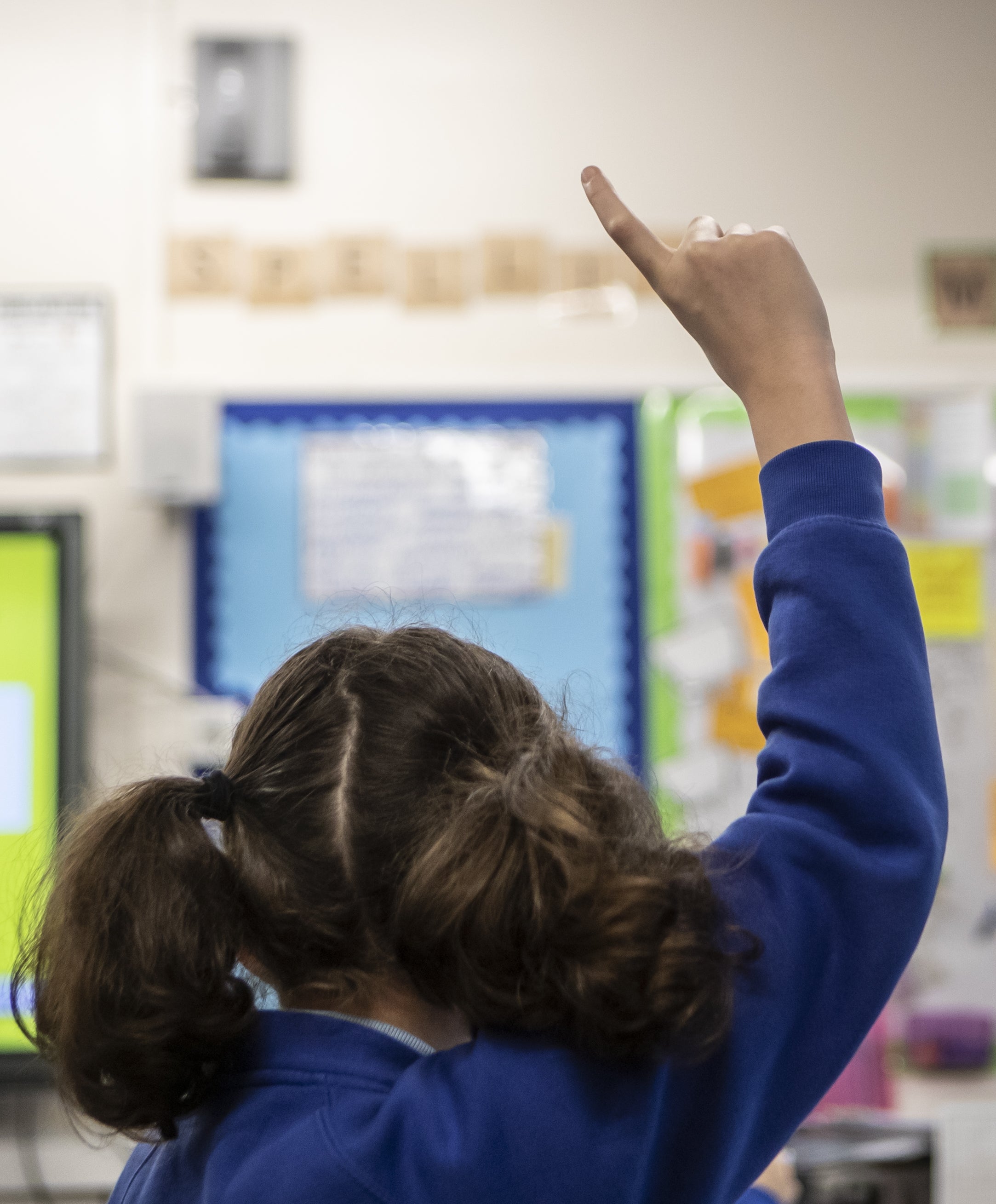Deaf children still being failed by education system, says charity
This group achieved a lower grade each year dating back to 2017 compared with all children, the National Deaf Children’s Society said.

Your support helps us to tell the story
From reproductive rights to climate change to Big Tech, The Independent is on the ground when the story is developing. Whether it's investigating the financials of Elon Musk's pro-Trump PAC or producing our latest documentary, 'The A Word', which shines a light on the American women fighting for reproductive rights, we know how important it is to parse out the facts from the messaging.
At such a critical moment in US history, we need reporters on the ground. Your donation allows us to keep sending journalists to speak to both sides of the story.
The Independent is trusted by Americans across the entire political spectrum. And unlike many other quality news outlets, we choose not to lock Americans out of our reporting and analysis with paywalls. We believe quality journalism should be available to everyone, paid for by those who can afford it.
Your support makes all the difference.Deaf children are being failed by an education system that has seen them achieve an entire grade less at GCSE for five years in a row, a charity has warned.
Young people with hearing difficulties are not being supported properly and are therefore suffering when it comes to learning and exams, the National Deaf Children’s Society said.
The charity said its analysis of 2021 results showed that deaf children achieved a grade 4 on average, compared with a grade 5 for all children.
The charity’s warning comes as schoolchildren await their GCSE results on Thursday, with grades expected to be down on last year but higher than before the pandemic.
In looking at the average Attainment 8 scores – which measure the achievement of a pupil across eight different subjects – it said there had been a full grade difference each year dating back to 2017 between deaf children and the higher grade achieved on average by all children.
There are more than 50,000 deaf children in the UK, of whom about 45,000 are in England, according to the society.
The charity said that Department for Education (DfE) data shows attainment gaps in key subject areas including English and maths, with just over a third (37.7%) of deaf children getting a grade 5 in both these subjects, compared with more than half (51.9%) of all children.
The society has urged the Government to use its review of how children with special educational needs and disabilities are supported in schools to “develop a plan to provide effective, long-term specialist support for deaf children in schools”.
It is also urging the Government to invest in more specially qualified teachers of the deaf, whose numbers it said research has shown have fallen by almost a fifth (17%) over the last decade, as well as other specialist staff.
Deafness isn’t a learning disability and there’s no reason why deaf children should achieve less than hearing children
Mike Hobday, director of policy and campaigns at the charity, said the results disparity is “yet further proof that our education system is consistently failing deaf children”.
He said: “The current set-up is simply not fit for purpose and, without targeted investment in Teachers of the deaf and other frontline staff, nothing will change.
“Deafness isn’t a learning disability and there’s no reason why deaf children should achieve less than hearing children. The issue is clearly a lack of support.
“This needs to be a serious wake-up call for anyone working in deaf education.
“If the Government fails to act during the Send (special educational needs and disability) review, generation after generation of deaf children will keep being let down by a system that is meant to support them.”
A spokeswoman for the DfE said: “All children and young people, including those who are deaf or have a hearing impairment, should receive the support they need to succeed in their education.
“There is a legal requirement for qualified teachers to hold relevant mandatory qualifications when teaching classes of pupils who have a sensory impairment.
“Our Send and alternative provision green paper proposals will build on this support, aiming to change the culture and practice in mainstream education to be more inclusive. This includes through earlier intervention, improved targeted support and better workforce training.”